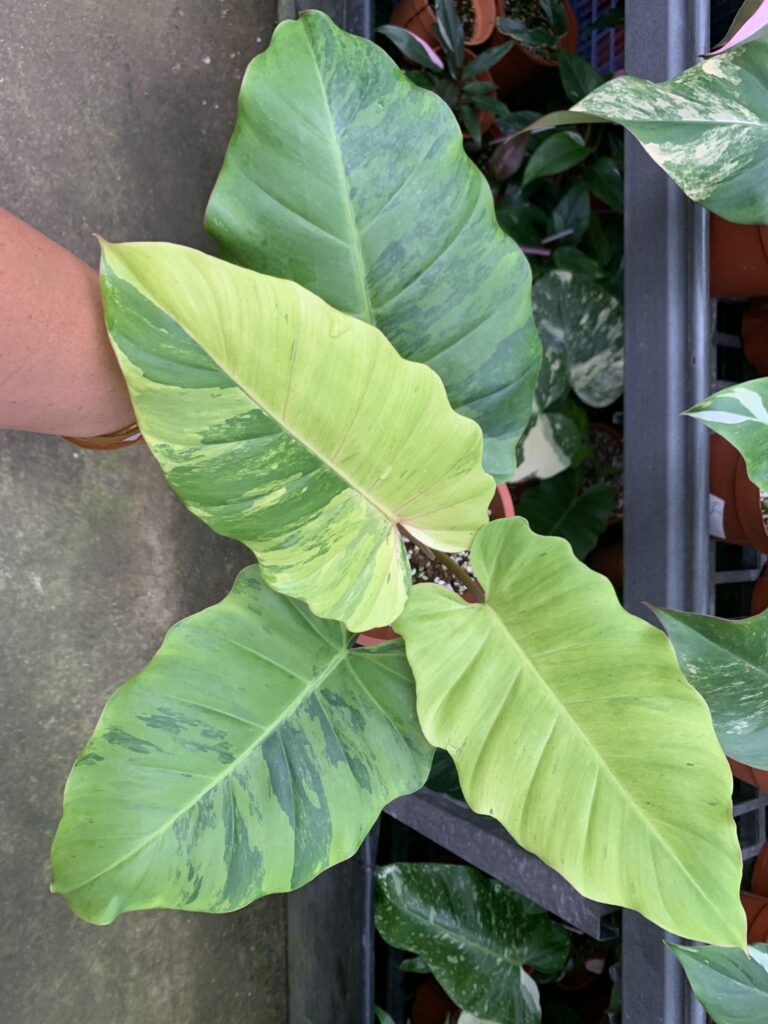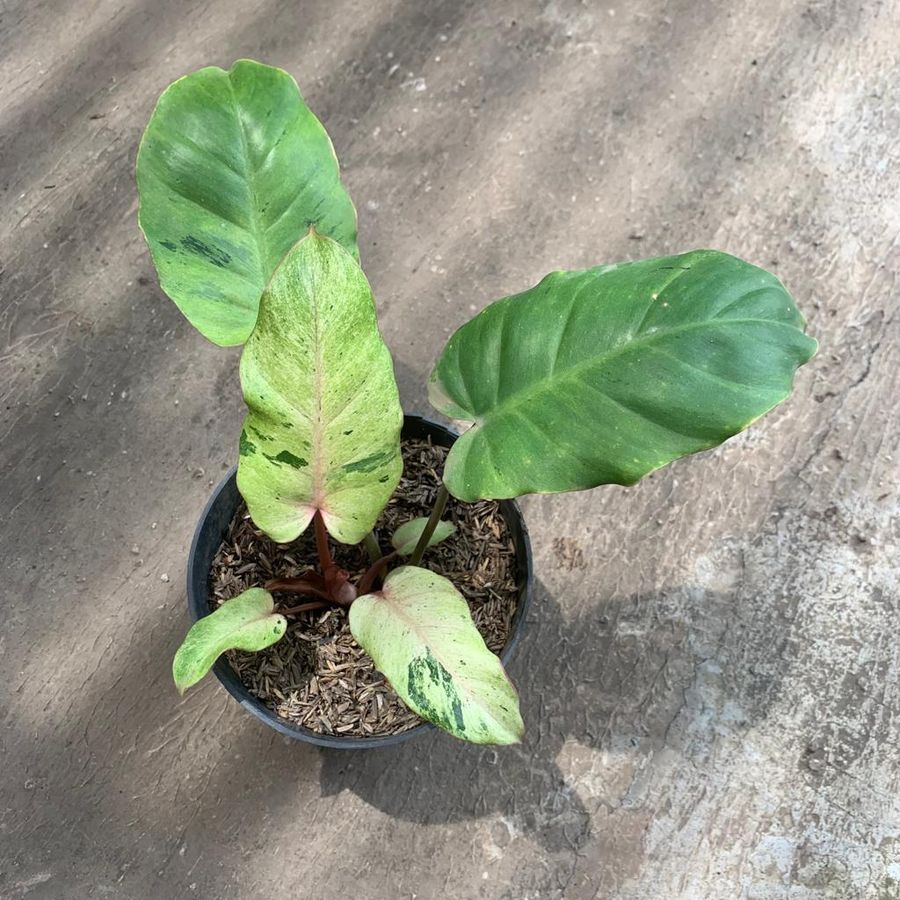Philodendron Snowdrift Variegated: An Overview
Introduction to Philodendron Snowdrift Variegated
Philodendron Snowdrift Variegated is an incredible tropical plant, beloved for its stunning variegated foliage and relatively easy care. This plant can truly make an aesthetic statement in any indoor or outdoor garden. But what makes it so special?
Unique Characteristics of Philodendron Snowdrift Variegated
The Variegation
One of the main draws of the Philodendron Snowdrift Variegated is, unsurprisingly, its variegation. Each leaf is a work of art, with unique combinations of green and creamy white. The variegation is not just appealing; it's like owning a piece of living, breathing art!
Growth and Size
Philodendron Snowdrift Variegated is known for its vigorous growth and sizable leaves. With optimal conditions, the plant can reach impressive heights, creating a stunning display in your space.
Leaf Structure
Each leaf is uniquely heart-shaped with distinctive veins. The leaves' glossy texture complements their striking coloration, creating an eye-catching contrast.

Cultivation and Care for Philodendron Snowdrift Variegated
Soil Requirements
This tropical beauty prefers well-draining soil. A mix of peat moss, perlite, and potting soil often works best. This blend ensures adequate moisture retention while preventing waterlogging.
Light and Temperature
Philodendron Snowdrift Variegated thrives in bright, indirect light. Protect it from harsh sunlight, which can cause leaf burn. It prefers warm temperatures, ideally between 65 and 80°F (18-27°C).
Watering and Humidity
Water your Philodendron Snowdrift Variegated when the top inch of soil feels dry to the touch. The plant also enjoys high humidity, so consider using a humidifier or pebble tray.
Pruning and Repotting
Prune your plant to maintain its shape and size. Repotting should be done every two years or when the plant outgrows its pot.

"Discover the exquisite beauty of the Philodendron Snowdrift Variegated – a true masterpiece of nature! Click now to bring this stunning plant into your home and elevate your living space. Don't miss out – shop now!"
Common Problems and Solutions
Pests
Common pests include mealybugs, aphids, and spider mites. Use insecticidal soap or neem oil for control.
Diseases
Watch out for root rot and leaf spot. Both can be prevented with proper watering and good air circulation.
Other Common Issues
Yellowing leaves can indicate overwatering or lack of nutrients. Adjust your watering schedule or consider a balanced plant fertilizer to rectify this issue.
Propagation of Philodendron Snowdrift Variegated
Philodendron Snowdrift Variegated can be propagated through stem cuttings. Select a healthy stem, make a clean cut, and place it in a jar of water. Once roots appear, you can pot the cutting in soil. It's a satisfying process, and it allows you to share this stunning plant with others!

Conclusion
Caring for a Philodendron Snowdrift Variegated can be a rewarding endeavor, as this stunning plant adds a unique aesthetic appeal to any space. It requires some attention and love, but with the right care, it will reward you with its spectacular variegated foliage and robust growth. So why not invite this tropical beauty into your home or garden and enjoy the ambiance it brings?
FAQs
1. Is Philodendron Snowdrift Variegated toxic? Yes, it is toxic if ingested. Keep it out of reach from pets and children.
2. How often should I water my Philodendron Snowdrift Variegated? Water when the top inch of soil feels dry. Overwatering can lead to root rot.
3. Can Philodendron Snowdrift Variegated grow outdoors? Yes, but it's best suited for zones where temperatures don't drop below 55°F (13°C).
4. Why are the leaves on my Philodendron Snowdrift Variegated turning yellow? Yellowing leaves can be a sign of overwatering or a nutrient deficiency.
5. How can I increase the humidity for my Philodendron Snowdrift Variegated? Use a humidifier, mist your plant, or place it on a pebble tray with water.
https://bit.ly/47gIsFm
Nhận xét
Đăng nhận xét